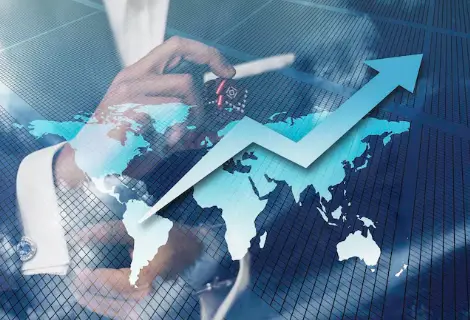
Topics: Sustainability Audits
Look, everyone’s slapping green stickers on everything these days. You’d think every company on earth is single-handedly saving the planet. Spoiler: they’re not. Half the time, it’s just a lot of talk — classic greenwashing. Companies parade their “eco-friendly” moves in big, glossy reports, but behind the scenes? Sometimes it’s just smoke and mirrors. That’s where sustainability audits come in. They’re the BS detector for all those environmental claims.
Sustainability Audit — What’s That, anyway?
Forget the shiny brochures. A sustainability audit is a deep-dive into what a company is *actually* doing for the planet, people, and their ethics. Not just the environmental stuff, but how they treat workers, who’s calling the shots, and whether they’re serious about all that “doing good” talk. Audits look under the hood, not just at the paint job.
Once upon a time, these things were “nice to have.” Now? They’re mission-critical if you want anyone to believe your ESG (Environmental, Social, Governance) spiel.

How the Audit Goes Down
You can do it in-house or call in the pros. Either way, here’s the usual drill:
- Pre-Audit — AKA The Homework
First, figure out what you’re trying to prove and which standards matter (GRI, SASB, TCFD — yeah, it’s an alphabet soup). Decide who’s involved, what you’re checking out (energy, waste, labor, the whole nine yards), and grab some basic numbers to start.
- Digging for Dirt (Literally and Figuratively)
Time to get messy. Auditors pore over the nitty-gritty — energy bills, trash output, whether that “locally sourced” coffee is, worker conditions, you name it. They want receipts, not just promises.
- Talking to Real People
You can’t just ask the CEO if everything’s great. Auditors pull in employees, suppliers, maybe even customers. If you say your supply chain is squeaky clean, be ready to show those supplier contracts. No hiding behind buzzwords.
- The “Oh Crap” Moment (Gap Analysis)
Here’s where they stack your numbers up against the big leagues and see where you’re falling short. Sometimes companies find skeletons in the closet they didn’t even know they had. Expect a few “ouch” moments.
- The Report Card
After all that poking around, you get a report — warts and all. It’ll spell out where you’re winning, where you’re lagging, and what needs fixing ASAP. Bonus: you get a neat little chart showing which issues your stakeholders care about (hint: probably not your recycled tote bags).
- Rinse, Repeat
Audits aren’t a one-and-done deal. Good companies keep checking in, fixing stuff, and getting better. That’s the whole point: keep moving the needle, not just checking a box.
Why Bother? Here’s why. Right now, consumers and investors have their BS detectors cranked to max. ESG isn’t some fluffy feel-good thing — it’s serious business.
— Catching Greenwashers: Audits call out the fakers, plain and simple.
— Trust Points: If you’ve got a legit third-party audit, people believe your claims. Wild, right?
— Show Me the Money: Investors are all about verified ESG these days. No audit, no cash.
— Law’s Getting Tighter: Governments want receipts, too. Audits get you ready for all that red tape.
— Sparks New Ideas: You find gaps, you get creative. Suddenly, you’re innovating, not just coasting.
No More Guessing Games
To back up your “we care” messaging, you need hard evidence. Lifecycle analysis, emissions data, worker audits, the works. Certifications and shiny badges are nice, but if you’re not auditing for real, it’s just window dressing.

End of the Day?
Audits cut the crap. They separate real action from empty PR. If you’re running a business, buying from one, or just trying to live on this planet without losing your mind, know what a sustainability audit is. It’s the difference between lip service and real change.
Time to quit the green theatre and get serious. The planet’s got enough problems — let’s not add BS to the list.
Reference

FAQ Section: Sustainability Audits
1. What are sustainability audits?
They are structured assessments that evaluate a company’s environmental, social, and governance practices.
2. Why do businesses need sustainability audits?
They help verify claims, expose gaps, and improve long-term credibility.
3. Who conducts sustainability audits?
They may be carried out internally or by independent third-party auditors.
4. What areas are checked during sustainability audits?
Energy usage, waste management, labor rights, and supply chains are key areas.
5. How often should sustainability audits be performed?
Most companies benefit from annual reviews to stay compliant and transparent.
6. Can small companies use sustainability audits?
Yes, even startups and SMEs use them to prove responsibility and efficiency.
7. How do sustainability audits stop greenwashing?
They provide evidence-based results, exposing misleading environmental claims.
8. Do sustainability audits look at supply chains?
Yes, they track sourcing, supplier contracts, and ethical practices.
9. Are sustainability audits legally required?
In some regions, they’re becoming mandatory under stricter ESG regulations.
10. How do investors use sustainability audits?
Investors rely on audit results to measure long-term risk and opportunity.
11. What is a gap analysis in sustainability audits?
It’s the process of comparing current practices to global standards.
12. What standards guide sustainability audits?
Frameworks like GRI, SASB, and TCFD shape how they are conducted.
13. How do employees contribute to sustainability audits?
Auditors often speak to staff to verify real conditions beyond reports.
14. Are sustainability audits costly?
Costs vary, but the value in risk reduction and trust-building is significant.
15. Do sustainability audits improve reputation?
Yes, verified results help build consumer and stakeholder confidence.
16. How do sustainability audits drive innovation?
They highlight inefficiencies that inspire new solutions and strategies.
17. What’s the link between ESG and sustainability audits?
Audits supply verified data that feeds into accurate ESG reports.
18. How do governments view sustainability audits?
They support them as tools to ensure compliance and enforce regulations.
19. Can sustainability audits improve profitability?
Yes, by cutting waste, saving energy, and uncovering growth opportunities.
20. What’s the future of sustainability audits?
They’re expected to become more standardized, data-driven, and globally required.
Penned by Khyati Agrawal
Edited by Ishan, Research Analyst
For any feedback mail us at info@eveconsultancy.in
Finance made simple, fast, and fun! 🏦💡 Sign up for your daily dose of financial insights delivered in plain English. In just 5 minutes, you’ll be smarter already!
Simplify Your Business Compliance with Eve Consultancy
Eve Consultancy is your trusted partner for end-to-end compliance services, including Company Incorporation, GST Registration, Income Tax Filing, MSME Registration, and more. With a quick and hassle-free process, expert guidance, and affordable pricing, we help businesses stay compliant while they focus on growth. Backed by experienced professionals, we ensure smooth handling of all your legal and financial requirements. WhatsApp us today at +91 9711469884 to get started.
